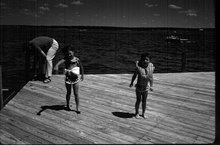
“If I were a poet I would write a poem beginning, ‘I am the spirit of the wind,’ and in it I would sweep the globe. I would tell how silently I move over the lonesome and limitless prairies, such as those vast stretches around Childress, how I blow as gently upon the reptiles and creeping things in the grass of that great area, as I kiss the cheeks of the fairest maid in Southland as she sits with her lover behind the honeysuckle vines. I would sing of my stealthy and wayward march across the prairies and begin to sigh only when the cedars are reached in the breaks of the Edwards Plateau. How my sighing rises to a perfect plaint when I am among the stately pines of East Texas. I would exult and my song would rise to new heights as I swept off the land and took to the open sea, freeing myself soon of the stench of all the lands and sucking up the keen salt spray and leaping in joy of one wave-top to another. A great and glorious song would I sing of the open sea, and I would imagine more things in the depths below than Grecian mythology ever dreamed of. I would pass quickly over a thin line in northern France where the stench of human corpses would be very offensive to me, and where the roar of guns interrupts my quiet song among the trees, and I would hurry on to the wastes of Siberia, a section much to my liking, and so on and so on—I would wrap the brown earth in my glowing song—if I were a poet with the spirit of the wind.” [Bedichek to Dan Williams, 13 March, 1918]
The Letters of Roy Bedichek, William Owens, ed.University of Texas Press, 1985.




